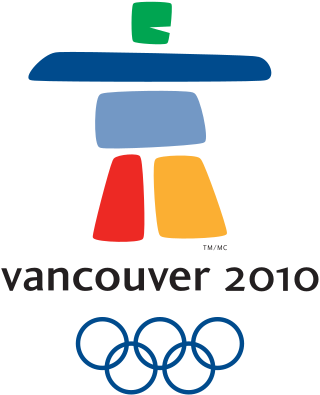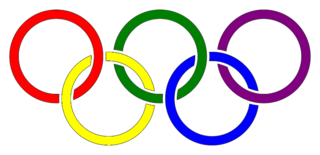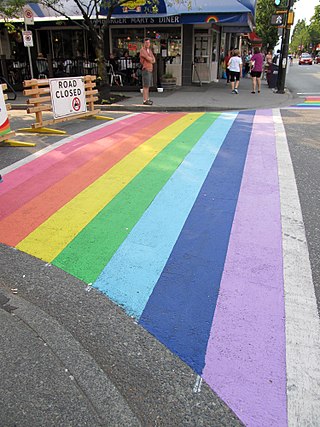
The 2010 Winter Olympics, officially known as the XXI Olympic Winter Games and also known as Vancouver 2010, were an international winter multi-sport event held from February 12 to 28, 2010 in Vancouver, British Columbia, Canada, with some events held in the surrounding suburbs of Richmond, West Vancouver and the University of British Columbia, and in the nearby resort town of Whistler. It was regarded by the Olympic Committee to be among the most successful Olympic games in history, in both attendance and coverage. Approximately 2,600 athletes from 82 nations participated in 86 events in fifteen disciplines. Both the Winter Olympic and Paralympic Games were organized by the Vancouver Organizing Committee (VANOC), headed by John Furlong. The 2010 Winter Games were the third Olympics to be hosted by Canada, and the first to be held within the province of British Columbia. Canada had hosted the 1976 Summer Olympics in Montreal, Quebec, and the 1988 Winter Olympics in Calgary, Alberta.

The Gay Games is a worldwide sport and cultural event that promotes acceptance of sexual diversity, featuring lesbian, gay, bisexual, and transgender (LGBTQ) athletes, artists and other individuals.

The 2010 Winter Paralympics, or the tenth Paralympic Winter Games, were held in Vancouver and Whistler, British Columbia, Canada from March 12 to 21, 2010. The opening ceremony took place in BC Place Stadium in Vancouver and the Closing Ceremony in Whistler Medals Plaza.

The 2014 Winter Paralympics, the 11th Paralympic Winter Games, and also more generally known as the Sochi 2014 Paralympic Winter Games, were an international multi-sport event for athletes with disabilities governed by the International Paralympic Committee (IPC), held in Sochi, Russia, from 7 to 16 March 2014. 45 National Paralympic Committees (NPCs) participated in the Games, which marked the first time Russia ever hosted the Paralympics. The Games featured 72 medal events in five sports, and saw the debut of snowboarding at the Winter Paralympics.
This is a timeline of notable events in the history of the lesbian, gay, bisexual and transgender (LGBT) community in Canada. For a broad overview of LGBT history in Canada see LGBT history in Canada.

WorldPride is a series of international LGBT pride events coordinated by InterPride; they are hosted in conjunction with local LGBT pride festivals, with host cities selected via bids voted on during InterPride's annual general meetings. Its core events include opening and closing ceremonies, a pride parade, and an LGBT human rights conference.

Anastasia Bucsis is a Canadian former speed skater. She competed at the 2010 Winter Olympics in Vancouver in the women's 500-metre competition. In addition, she participated in the Sochi 2014 Winter Olympics for women's long track, placing 27th in the 500 metres. She now is a sportscaster and personality for CBC. Bucsis lives in Toronto, and is a passionate advocate for mental health issues, eradicating homophobia in sport, and telling the stories of athletes.
The lesbian, gay, bisexual, transgender, queer, and other non-heterosexual or non-cisgender (LGBTQ+) community is prevalent within sports across the world.
Qmunity, formerly known as the Centre, is an LGBT community centre located on Bute Street in the Davie Village neighbourhood of the West End of Vancouver, British Columbia, Canada.
The North America Outgames were a multi-sport event held every three years by the Gay and Lesbian International Sport Association for LGBT athletes in North America. They were a regional derivation of the World Outgames, which is also held by GLISA, and they are held on different years than the World Outgames. GLISA was dissolved after the cancellation of the 2017 World Outgames IV.
Marion Beverly Lay, is a former competitive swimmer who represented Canada in the 1964 Summer Olympics and 1968 Summer Olympics. Swimming the anchor leg for Canada's third-place team in the women's 4x100-metre freestyle relay, she won an Olympic bronze medal, together with teammates Angela Coughlan, Marilyn Corson and Elaine Tanner.
The International Gay & Lesbian Aquatics Association is the international governing body for predominantly LGBT+ aquatics clubs, representing the sports of swimming, diving, artistic swimming, water polo, and open water swimming. Member clubs are from 16 countries, with the majority of clubs in the United States and Canada. Past presidents of the association have included Scott Kohanowski and Gareth Johnson.
During the lead-up to the 2014 Winter Olympics, protests and campaigns arose surrounding the rights of lesbian, gay, bisexual, and transgender (LGBT) people in Russia.

Athletes and artists who identify as lesbian, gay, bisexual, transgender, pansexual, non-binary, queer, and/or intersex, and/or who have openly been in a same-sex relationship (LGBTQI+) have competed in the Olympic and Paralympic Games, either openly, or having come out some time afterward.

For the Purpose of Protecting Children from Information Advocating a Denial of Traditional Family Values, commonly known as the Russian anti-LGBT law or as the Russian anti-gay law, is a law of Russia. It was unanimously passed by the State Duma on 11 June 2013, unanimously passed by the Federation Council on 27 June 2013, and signed into law by President Vladimir Putin on 30 June 2013.

The Principle Six campaign, also Principle 6, or P6, was launched in January 2014 as an Olympic protests of Russian anti-gay laws in conjunction with the 2014 Winter Olympics being held in Sochi, Russia. Principle 6 refers to the sixth principle of the Olympic Charter that says any form of discrimination "is incompatible with belonging to the Olympic Movement."
Any form of discrimination with regard to a country or a person on grounds of race, religion, politics, gender or otherwise is incompatible with belonging to the Olympic Movement.

Vancouver's LGBT community is centered on Davie Village. Commercial Drive has historically acted as a gayborhood for the Vancouver lesbian community. Historically, LGBT people have also gathered in the Chinatown and Gastown neighborhoods. Former establishments include Dino's Turkish Baths, a gay bathhouse on Hastings, and the city's first drag bar, BJ's, on Pender Street.










